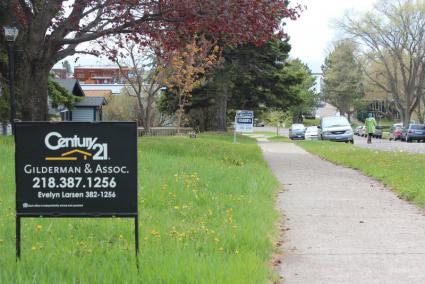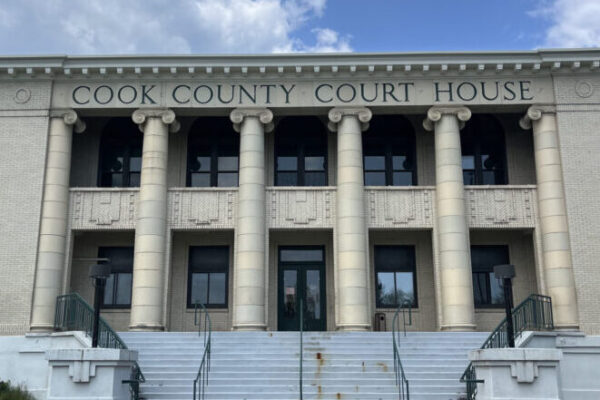County prepares for busy week with landowner appeals as property values continue to rise
Many Cook County homeowners saw their property values go up for taxes payable in 2023, according to local officials.
Cook County Assessor Bob Thompson said the average increase in value for properties across Cook County was 31 percent. To put a dollar amount to that figure, in 2022 Cook County’s total market value increased by more than $521 million across all property types, Thompson said.
These valuation increases resulted in an unprecedented number of taxpayer appeals to the assessor’s office, Thompson said. Since the 2022 property valuation notices were sent earlier this year, the local assessor’s office fielded more than 520 taxpayer inquiries, Thompson told WTIP’s Joe Friedrichs during a June 17 interview. (Audio below.)
Under Minnesota state statute, the county must provide an opportunity for taxpayers to appeal their valuation and/or classification to the county board of commissioners, or a special board appointed by the county commissioners, Thompson told the commissioners during a June 14 meeting. The Cook County Board of Appeals & Equalization meeting is Thursday, June 23 at 6 p.m., though supplemental time slots are available throughout the day for people to discuss their valuation notices.
Thompson said many of the increases were observed on valuation notices sent by the county in late April. Each spring, tax and property value statements are sent out by the county assessor’s office. Thompson said a significant reason for the increase in property values is due to a booming real estate market in Cook County.
Thompson said there were about 600 properties that sold in Cook County in 2021, nearly double the 323 home sales in Cook County from 2020. Most homes in Cook County are selling for their listing price or higher at this time, with some properties selling nearly as soon as they hit the market.
The relationship between property values and real estate is a complex one, though an easy way to think of it is that if homes and land are selling for a higher price than their appraised values, it is likely to increase similarly priced homes throughout the county, according to the county assessor.
Some in the community are pointing to short-term rentals, also referred to as vacation rentals, as a reason for the increase in property values in Cook County. Thompson acknowledged that short-term rentals are likely impacting the housing market locally, but could ultimately play a unique role when it comes to how much taxes a homesteaded property pays.
“The vacation rentals may play a role in some of the activity that’s going on in the market,” Thompson said. “For the assessor’s office, we look at all the sales the same, we value properties all consistently. The difference between those properties is that they pay a different classification rate. Part of that is a result of a resolution that the board of commissioners for Cook County put forward back in 2019, to have those classified as not a seasonal cabin, which ended up with those properties picking up about seven percent additional of the levy more than they would have two years ago.”
Furthermore, Thompson said it’s important to note that an increase in property values does not always directly relate to an increase in property taxes.
“What we always try to explain to people is if the assessor’s office was to double every property value in the entire county, that doesn’t mean their taxes go up,” Thompson said. “In fact, they would stay the same in that scenario. What makes the taxes go up is when the levy increases at the end of the year.”
Another topic discussed during the June 17 interview is the 1996 Iron Range Fiscal Disparities Act. The purpose of the program is to aid communities across northern Minnesota that have a small commercial and industrial tax base by giving them a share of property taxes from other communities with more property wealth, Thompson said. It affects all commercially and industrially classified property in Cook County by generating a substitute tax, which is generally higher than the county-imposed levy. This year, however, Cook County is paying a significantly larger sum in comparison to what the county will take in through the complex ‘fiscal disparities’ equation. Thompson said a rise in commercial property in Cook County, highlighted by a one-year blip where many vacation rentals were considered commercial properties, played a role in the amount the county owes to the fiscal disparities pool.














